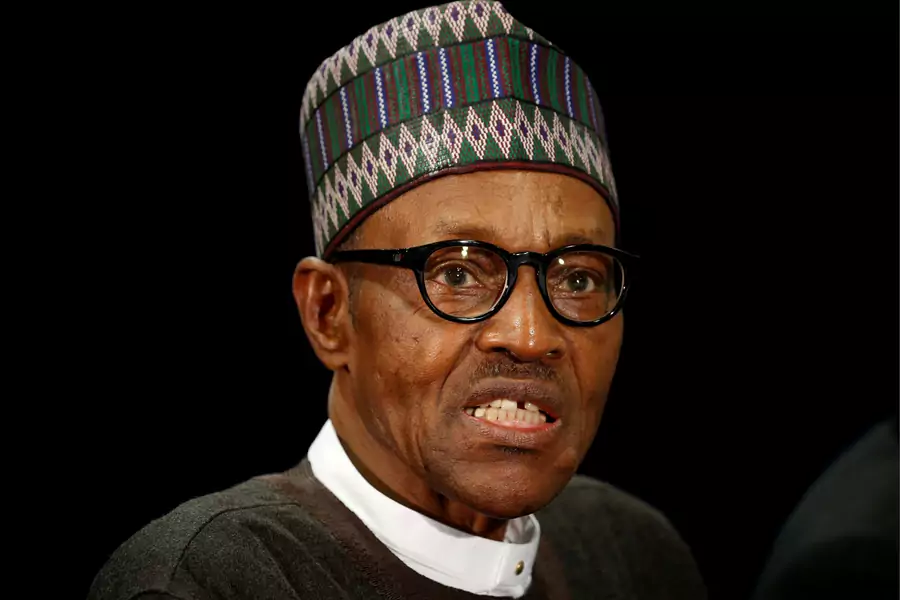Buhari's Ramadan Message Fuels Speculation Over His Health

To mark the end of the Muslim holy month of Ramadan (Eid-el-Fitr), Nigerian President Muhammadu Buhari broadcast a congratulatory statement, as is the norm in Nigeria and many other countries with a large Muslim population. What was not normal, however, was the statements brevity—about a minue—and the situation that surrounded its delivery. Buhari has been in London for the last fifty-four days on medical leave and there is widespread anxiety in Nigeria about his health. Indeed, in his broadcast, President Buhari thanked Nigerians for “including me in your prayers during this blessed month.”
If the broadcast was intended to reassure Nigerians about the president’s health, it seems to have had the opposite effect. According to Nigerian listeners, their president’s voice was frail and shaky, adding to fear that he may not recover. There was even speculation that it was not even Buhari delivering the message, but a stand-in. Furthermore, it is curious that the broadcast was in Hausa, rather than in English, Nigeria’s only official language. While Hausa is the lingua franca of predominately Muslim northern Nigeria, there are many non-Hausa speaking Muslims in Nigeria, especially in the Yoruba southwest.
More on:
In a public, written statement, Ekiti state governor Ayodele Fayose claimed that President Buhari has been on life support since June 6 and called for the prayers of Nigerians. Fayose is a member of the opposition Peoples Democratic Party and no political friend of the president (he has also accused Buhari’s wife of corruption in the past). Still, his statement on the president’s health feels different than politics as usual.
Reflecting the uncertainty of their president’s health, many Nigerians are concerned that the country is adrift, in much the same way it was during the late president Umaru Yar’Adua’s final days. Fortunately, however, international and domestic business people give Buhari’s vice president, Yemi Osinbajo, high marks for his management of the economy during the president’s absence
Nevertheless, conspiracy theories abound in Nigeria regarding the state of Buhari’s health. One is that a “cabal” of two or three has “captured” President Buhari and cut him off from contact with the outside world. As elsewhere in Africa, there is little or no transparency about the health of a chief of state and rarely any public announcement about the course of any treatment, fertile ground for speculation to grow. Fifty-four days is a long time to go without answers.
More on:
 Online Store
Online Store